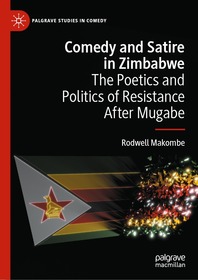
Post-Yugoslav Cinema and the Shadows of War
A Study of Non-Representation in Film
Series: Film Culture in Transition; 99;
- Publisher's listprice GBP 111.00
-
53 030 Ft (50 505 Ft + 5% VAT)
The price is estimated because at the time of ordering we do not know what conversion rates will apply to HUF / product currency when the book arrives. In case HUF is weaker, the price increases slightly, in case HUF is stronger, the price goes lower slightly.
- Discount 20% (cc. 10 606 Ft off)
- Discounted price 42 424 Ft (40 404 Ft + 5% VAT)
Subcribe now and take benefit of a favourable price.
Subscribe
53 030 Ft

Availability
Estimated delivery time: In stock at the publisher, but not at Prospero's office. Delivery time approx. 3-5 weeks.
Not in stock at Prospero.
Why don't you give exact delivery time?
Delivery time is estimated on our previous experiences. We give estimations only, because we order from outside Hungary, and the delivery time mainly depends on how quickly the publisher supplies the book. Faster or slower deliveries both happen, but we do our best to supply as quickly as possible.
Product details:
- Edition number 1
- Publisher Routledge
- Date of Publication 3 September 2025
- ISBN 9789048559572
- Binding Hardback
- No. of pages240 pages
- Size 234x156 mm
- Weight 516 g
- Language English
- Illustrations 9 Illustrations, black & white 692
Categories
Short description:
This study proposes to call non-representational images as appearing to offer a more dynamic relationship to the past and the present, while reflecting complex processes of the formation of identity, memory, guilt, and responsibility.
MoreLong description:
Bosnia-Herzegovina is still considered a post-war country. The concept of post-war implies that the country and its people are tied more strongly to the past than they are oriented towards the future. Paradoxically, as long as the future is kept at bay and the post-war condition kept alive, Bosnia maintains a certain significance on the global scene. However, living in the temporal vacuum of the post-war condition cannot be a long-term perspective. A range of post-Yugoslav films provides spectators with images that offer innovative approaches to the collective past, while simultaneously reframing contemporary experience. This study proposes to call non-representational images appears to offer a more dynamic relationship to the past and the present, while reflecting complex processes of the formation of identity, memory, guilt, and responsibility. But if these dynamics are inherent in non-representational images, is there a way in which they can contribute to overcoming the post-war condition?
MoreTable of Contents:
List of Illustrations, Preface, Introduction, I Post-Yugoslav Cinema in the Face of Post-War Culture, II Beyond Self-Victimization, III Limitations of Non-Representation, IV Excavating Memories of War, Conclusion, Index
More





